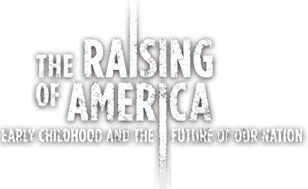Resources for Early Childhood Development
Below is a collection of resources available for you to download or add to Your Favorites. Search the collection using keywords and tags.
Make selections above to narrow results.
What’s the Amygdala-PFC Connection?
The Wisconsin team found weaker connections in the neural circuits connecting the amygdala with the prefrontal cortex in teenage girls whose parents reported higher stress when the girls were infants. It was as if the threat signals from the amygdala weren’t getting through and couldn’t be assessed properly by the prefrontal cortex.
Add to Your Favorites
Remove from Your Favorites
Stress: The Good, the Bad and the Toxic
Not all stress is the same. There's good stress (for developing), bad stress (from which we can recover), and toxic stress (which is the worst in the long run).
Add to Your Favorites
Remove from Your Favorites
Snap, Snap Synapse
Brains are built. Our early relationships and environments, our history, literally get under the skin and shape the architecture of our developing brain.
Add to Your Favorites
Remove from Your Favorites
DNA Is Not Destiny
How do our social environments (nurturing, toxic, and in-between) alter the epigenetic ‘dimmer switches’ that turn our genes on and off—with enduring consequences?
Add to Your Favorites
Remove from Your Favorites
Reversing the Epigenetic Effects
Humans are resilient organisms and studies show that negative epigenetic effects need not be permanent.
Add to Your Favorites
Remove from Your Favorites
Can Poverty Modify the Epigenome?
If social conditions can “get under the skin” and modify our biology, are less-affluent children being primed for more problems in life?
Add to Your Favorites
Remove from Your Favorites
Building a Nest in the Middle of a Desert
Rat mothers like to build nests for their pups with soft materials. But these moms have only been given hard, scratchy, inferior building supplies.
Add to Your Favorites
Remove from Your Favorites
Our Experiences Go Deeper Than We Thought
We’ve long known that early life can last a lifetime. Now new science shows how our experiences can become imprinted in our biology, altering gene expression.
Add to Your Favorites
Remove from Your Favorites
Can We See Toxic Stress in the Brain?
Which neuron is damaged by toxic stress? For neuroscientists, the answer is clear.
Add to Your Favorites
Remove from Your Favorites











